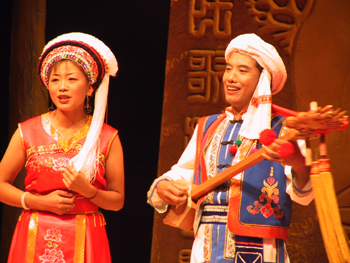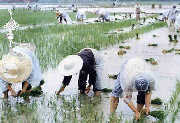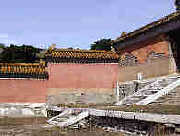
An ancient Chinese saying has it that "singing started as early as the time men existed". This well implies the long history of folk ballads in China. As a literature form of the ordinary people and a component of folk customs, ballads can be viewed as a wellspring of national culture, nurturing poets and writers while passing down the traditional virtues of the Chinese people generation after generation .There is a vast ocean of ballads in every corner in every corner of the country.
Collection of Chinese Ballads includes an immense variety of folk ballads collected from different regions and ethnicities of China after May 4th Cultural Movement, 1919. Focusing on new collections, the book does not include the ones already recorded by ancient Chinese works or works before May 4th Movement. By principle, the epics and long narrative or lyric poems of different regions and ethnicities are not included either. However, excerpts or whole of some long poems are included or introduced in the book, given their indispensable role in the representation of a unique province, municipality or autonomous region.
Collection of Chinese Ballads mainly fall into the following categories according to its contents and functions: work ballads, political ballads, ritual ballads, love ballads, ballads of daily life, historical or legendary ballads, as well as Children's songs and rhymes. Meanwhile, some modification is made in light of the customs and the characteristics of some ballads in different provinces, municipalities and autonomous regions. As a result, apart from content-based categories, there are also special categories of ballads from a specific region or ethnic community, which are sub-divided by contents. For those major multi-ethnic provinces and autonomous regions, classification is mainly based on ethnicity, and then on contents.
Collection of Chinese Ballads is mainly about ballad lyrics; however, any ballad which can be sung or has incidental music is provided with the tune name or its representative opern in the appendix.
Collection of Chinese Ballads, edited and published under the principle of "scientific selection, broad coverage and wide representation", has involved the combined efforts of over 100,000 folklorists who have conducted in-depth investigation and extensive collection and selection across China. The total collection covers 30 volumes of over 50,000,000Chinese characters, each volume about 1.6 million words and colored illustrations at the beginning.
Collection of Chinese Ballads is to be completed and published in 2005.
Work Ballads
 Work can change the world and inspire people to sing as well. People eulogize work and sing while at work. Work ballads convey the sights and sounds of different working scenes: herders' flute, hunters' songs, fishing songs, lumbering songs, sailing songs, ramming songs, carriers' songs, etc.
Work can change the world and inspire people to sing as well. People eulogize work and sing while at work. Work ballads convey the sights and sounds of different working scenes: herders' flute, hunters' songs, fishing songs, lumbering songs, sailing songs, ramming songs, carriers' songs, etc.
The song of "Drums and Gongs for Weeding" vivifies the work of farmers in the field. Other types of songs also bring to life different working experiences: happy tealeaf-picking girls, careful silkworm-raising girls, hard-working weaver girls, exhausted miners, craftsmen sharing their life hardships and work experiences, etc..
Political Ballads

China enjoys a long tradition of observing people's customs and attitudes from folk ballads, which means that the ruler can gain a lot of knowledge about people's lives and his or her ruling success or failure through folk ballads. Political ballads are songs composed by the people based on their own life experiences and political status and reflect their general views and attitudes toward some political events, measures, situations or politicians. Therefore they can be criticisms, sarcasms, eulogies or mixed pieces.
